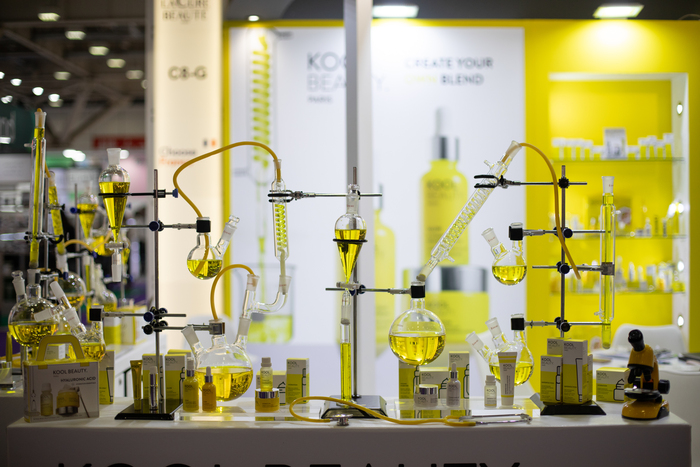Green is rising: when do consumers prefer environmentally friendly products?
Many commercial companies are directing efforts to produce environmentally friendly products and the Israeli consumer is ready to take part in the revolution, as long as he is not required to pay more for it.
What are the innovations in the field - and where does our "green line" go?
Ilana Stutland
10/20/2022
Thursday, October 20, 2022, 2:58 p.m. Updated: Saturday, October 22, 2022, 8:15 a.m.
Share on Facebook
Share on WhatsApp
Share on Twitter
Share by email
Share in general
Comments
Comments
We like to preserve the quality of the environment, but would we be willing to pay more for a green product? (Photo: ShutterStock)
The motivation should be twofold: both to try to protect the environment and, ultimately, to reduce our expenses on electricity and water - this is the message that many companies try to market to consumers in the launches of various products.
"All over the world, for example, there are campaigns for our products stating how many dollars it reduces from your electricity bill," says
Noa Uri, director of corporate responsibility and sustainability at Procter & Gamble Israel
.
"In a survey conducted by the company this summer in Israel, it emerged that only 9% of the entire public in Israel think that the responsibility for improving the climate crisis lies with humans and starts with our homes."
How do you intend to change consumer awareness?
"A third of the pollution on Earth can be reduced as a result of our actions at home. In the last decades, many changes have been made that integrate sustainability and innovation into the many products that the company produces.
Our perception as a company means that without significantly changing our usage habits at home, we have the option to make a significant improvement from an environmental point of view, which in the end will also save us money."
Noa Uri, Director of Corporate Responsibility and Sustainability at Procter & Gamble Israel (Photo: Tomer Appelbaum)
Uri: "For example, Ariel capsules for washing (30 degrees) work effectively in a cold wash (more than in a hot wash), which reduces up to 60% of the energy consumption of the washing operation. This means both less electricity consumption and less emissions. Or Fairy capsules for the dishwasher, Thanks to their innovation, it is possible to dispense with the pre-rinse in the sink, put directly in the dishwasher, and save 90% of the energy consumed in washing dishes in the dishwasher. Both saving water and electricity."
Uri adds: "Recently, we issued a sustainability box to network influencers - It's Our Home #, which includes some of our products, which allow home savings to begin right now. Some of the products will also receive dedicated campaigns, the goal of which is to show that change starts at home and that we can benefit from it both environmentally and financially."
good to know (in advance)
The quality water of Eden Water - at your home in a compact and designed water bar
Served on behalf of Eden Water
Fairy tablets are dishwasher safe.
Save water by eliminating the need to pre-rinse in the sink (Photo: Procter & Gamble)
Green-wash
"Many companies today believe in innovation, renewing existing products and developing new products that will improve the quality of life for all of us, and make them easy, convenient, green and cost-effective," says Ilya Umansky, product manager at Mini Line, importer of Electrolux, Samsung and AEG electrical products .
"For example, the Electrolux Perfect Care washer dryer series, which has an energy rating of A, is suitable for drying a variety of fabric types, saves energy and is individually adjusted to the needs of the users. Thanks to a heat pump instead of a classic heating element, they dry at lower temperatures, compared to normal washer dryers - which in the end Expresses up to 70% less energy consumption compared to normal clothes dryers. This is a savings of NIS 500-1,000 per year, depending on the level of use."
Ilya Umansky, product manager at Mini Line, importer of Electrolux, Samsung and AEG electrical products (Photo: Danden)
"In the field of household electrical appliances, we see a number of trends that are developing side by side and are becoming part of the characterization of the new consumer," says Gihan Yeshin
, CEO of Beko Israel
. To develop advanced and environmentally friendly technologies, and for consumers to prefer thoughtful and advanced products.
Those new and advanced technologies save resources such as water and electricity, which is reflected in the electricity and water bills of those who use these devices.
Thus preserving the quality of the environment, using advanced technologies and saving money have become the three main parameters that influence the choice of many consumers around the world."
The Beko brand offers, for example, a washing machine and dryer that include recycled plastic parts;
a stove made from waste fishing nets;
a refrigerator containing egg trays made from excess eggshells and bioplastic;
And AutoDose - a dishwasher with automatic filling of detergent that allows you to regulate the amount of material sufficient for the washing operation, reduces the need for daily use of tablets or capsules in the dishwasher and allows filling of detergent up to once a month only.
"When the dishwasher knows how to accurately measure the amount of cleaning liquid needed, it uses less electricity. So, thanks to the new technology, each wash reduces the use of cleaning agent by about 28% and saves money and energy," notes Yeshin.
Gihan Yeshin, CEO of Beko Israel (photo: courtesy of BEKO)
shy
"The development of electrical products with new technologies that preserve the quality of the environment can take years, the process itself can be more expensive, which sometimes makes the products themselves more expensive," says
Onor Dostel, Middle East and North Africa trade manager at Archelik, a manufacturer of Groding products
.
"But the consumer understands that it's worth investing in new and advanced products. It's not just the recycled parts they're made of, but also their ability to consume less electricity and water, which in the end also results in significant money savings. So choosing devices that consider the environment is also worthwhile for the planet And for consumers."
Dostel explains: "For example, a model of an integral inverter dishwasher, which knows how to estimate the amount of dishes and the level of dirt and, depending on the need, a measured amount of water sufficient to wash the dishes, saves on water and electricity costs; or a refrigerator that operates with technology that extends the life of fruits and vegetables, saves throwing away food and buying new food and a washing machine with the Supreme Refresh technology, which makes intensive use of steam and preserves the quality of the clothes and extends their life, reducing the need to buy new clothes."
Grundig refrigerator.
Promises to extend the life of vegetables and fruits, thus preventing food waste and overconsumption (Photo: Public Relations)
Green but expensive not sold
"We are ready to have a better world, but for this advantage alone the consumers are still not ready to pay more," says
Uri Obrotsky, an advertiser and innovation lecturer at Netanya Academic College
.
"If, for example, they offer a washing machine that costs NIS 1,000 more, but is less polluting, people will not buy it.
But if the message of environmental responsibility also directly affects my pocket in the products that I will bring into my home, then I will buy. This means that the consumer will be willing to pay more about a product if he knew that in the end it would save him, for example, 30% in water, or that a certain air conditioner would save electricity. Electricity has become very expensive for households, we feel it, so if there is a direct connection - that is, I will pay a little more for environmental responsibility, but I will also enjoy over time what It's called monetary benefits - so I'm ready to participate in the celebration."
The cost of living, says Obrotsky, "requires us to think about how we lower our fixed costs. Products such as refrigerators, air conditioners, and washing machines work every day. Therefore, the products that will create double value - both environmental and saving water and electricity - people will eventually adapt to them at home. The marketing message of those brands should also talk about the fact that if you do good to the environment, you will immediately enjoy your pocket."
Is an environmental agenda alone not enough?
"A very small segment may look for these products, which pollute the environment less. The majority will not pay more for these products, if there is no actual benefit in doing so and not just a virtual one. People are willing to take part, recycle bottles, maybe use less disposables, but they They won't pay significantly more for this or that product if they don't get real value from it. Most people, especially these days, end up dropping all agendas when it comes to their pockets."
Uri Obrotsky, advertiser and innovation lecturer at Netanya Academic College (photo: Private)
Of money
Tags
green
environmental quality
electronics





